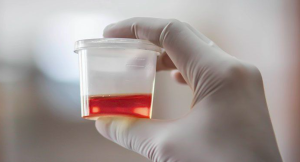
Is frequent urination a sign of bad disease?
Various factors can cause frequent urination, and while it may not always be a sign of a serious disease, it can indicate an underlying health issue. Some common causes of frequent urination include:
Urinary tract infection (UTI):

A urinary tract infection (UTI) is a common cause of frequent urination. UTIs occur when bacteria, usually from the digestive tract, enter the urethra and travel up into the bladder or other parts of the urinary tract. The infection can lead to irritation and inflammation, resulting in symptoms such as:
Frequent urination:
The inflammation of the bladder and urethra can cause a constant urge to urinate. However, only small amounts of urine may be passed each time.
Pain or burning during urination:

UTIs often cause a stinging or burning sensation during urination.
Cloudy or strong-smelling urine:

Infections can change the appearance and odor of urine.
Lower abdominal pain or discomfort:
Pain in the pelvic area is common with UTIs.
Blood in the urine:

In some cases, there may be visible blood or the urine may appear pink or red.
Fever and fatigue:

Systemic symptoms like fever and fatigue can occur if the infection spreads to the kidneys.
It's important to note that not everyone with a UTI will experience all of these symptoms, and the severity of symptoms can vary. If you suspect you have a UTI, it's crucial to see a healthcare professional for proper diagnosis and treatment. UTIs are typically treated with antibiotics, and early intervention helps prevent the infection from spreading to the kidneys or other parts of the urinary tract.
How Turmeric Prevents Heart Attack/Cancer?
Diabetes:

Frequent urination is a common symptom of diabetes, both type 1 and type 2. In diabetes, the body is unable to properly regulate blood glucose levels, leading to high levels of sugar (glucose) in the blood. This can result in increased urine production and the need to urinate more frequently. Here's how diabetes can cause frequent urination:
Glucose in the urine:

When blood glucose levels are elevated, the kidneys attempt to filter out the excess glucose. This excess glucose is then excreted in the urine, a condition known as glucosuria. The presence of glucose in the urine draws more water into the bladder, increasing urine production.
Osmotic diuresis:
High levels of glucose in the blood create an osmotic effect, where water is pulled into the urine, leading to increased urine volume. This phenomenon, known as osmotic diuresis, contributes to the frequent need to urinate.
Polyuria:
Diabetes-induced polyuria refers to the excessive production of urine. The kidneys work harder to eliminate the excess glucose, resulting in larger volumes of urine.
Polydipsia:
Increased urination often leads to increased thirst, a symptom known as polydipsia. The body tries to compensate for fluid loss by triggering a sense of thirst.
Nocturia:
People with diabetes may also experience frequent urination during the night (nocturia) because the kidneys continue to produce urine even when a person is trying to sleep.
If you are experiencing symptoms of frequent urination, excessive thirst, unexplained weight loss, and fatigue, it's important to consult with a healthcare professional for proper evaluation and testing. A blood glucose test can help diagnose diabetes or rule it out as the cause of your symptoms. Early detection and management of diabetes are crucial to prevent complications.
Enlarged prostate:

An enlarged prostate, a condition known as benign prostatic hyperplasia (BPH), is a common cause of frequent urination in men. The prostate is a walnut-sized gland that surrounds the urethra, the tube that carries urine from the bladder out of the body. As the prostate enlarges, it can put pressure on the urethra, leading to various urinary symptoms. Frequent urination is one of the key symptoms associated with an enlarged prostate. Here's how an enlarged prostate can cause frequent urination:
Urethral compression:
The enlarged prostate can compress or partially block the urethra, affecting the flow of urine. This obstruction can make it difficult for the bladder to empty, resulting in a more frequent urge to urinate.
Increased irritability of the bladder:
The pressure on the urethra and changes in the prostate can lead to increased irritability of the bladder muscle. This can cause the bladder to contract more frequently, even when it contains only a small amount of urine.
Nocturia:
Men with an enlarged prostate may experience an increased need to urinate during the night (nocturia). The pressure on the urethra can disrupt normal sleep patterns, prompting more frequent trips to the bathroom.
Difficulty starting and stopping urine flow:

Along with frequent urination, men with an enlarged prostate may also experience difficulty initiating urination or stopping the flow once it has started.
It's important to note that an enlarged prostate is a common part of aging for many men, and not everyone with an enlarged prostate will experience bothersome symptoms. However, if you are experiencing urinary symptoms that interfere with your quality of life, it's advisable to consult with a healthcare professional. Treatment options for an enlarged prostate may include medications or, in more severe cases, surgical procedures.
Sweaty hands? – What is the solution?
Overactive bladder:

Overactive bladder (OAB) is a medical condition characterized by a set of symptoms related to urinary urgency, frequency, and sometimes urge incontinence. Frequent urination is a key symptom of an overactive bladder. Here are some factors contributing to frequent urination in individuals with overactive bladder:
Detrusor muscle overactivity:
The detrusor muscle is a smooth muscle in the bladder wall that contracts to push urine out of the bladder. In individuals with overactive bladder, the detrusor muscle may contract involuntarily and more frequently than necessary, causing an urgent and frequent need to urinate.
Increased bladder sensitivity:
Overactive bladder is often associated with increased sensitivity of the bladder, leading to a heightened sensation of urgency. Even small amounts of urine in the bladder can trigger a strong urge to urinate.
Incomplete bladder emptying:
Some individuals with overactive bladder may experience difficulty fully emptying their bladder during urination. This can result in a more frequent need to urinate because the bladder is not completely emptied.
Neurological factors:
An overactive bladder can be associated with neurological conditions or nerve damage that affects the signals between the brain and the bladder, leading to an overactive detrusor muscle.
Bladder irritants:
Certain substances, such as caffeine, alcohol, and spicy foods, can act as bladder irritants and contribute to overactive bladder symptoms, including frequent urination.
Infections and inflammation:
Bladder infections or inflammation can contribute to overactive bladder symptoms, including an increased urge to urinate.
Management of overactive bladder may involve lifestyle modifications, behavioral therapies, medications, and, in some cases, more advanced interventions. If you are experiencing symptoms of overactive bladder, it's important to consult with a healthcare professional for a proper diagnosis and personalized treatment plan.
What happens to the lungs after smoking and what happens to the body from the moment you quit?
Interstitial cystitis:

Interstitial cystitis (IC), also known as bladder pain syndrome (BPS), is a chronic condition characterized by inflammation of the bladder wall. It can lead to a variety of symptoms, including frequent urination. The exact cause of interstitial cystitis is not well understood, but several factors may contribute to the development of this condition. Here are some potential causes and factors associated with frequent urination in individuals with interstitial cystitis:
Bladder inflammation:
The primary characteristic of interstitial cystitis is inflammation of the bladder wall. This inflammation can lead to irritation and increased sensitivity of the bladder, resulting in a frequent urge to urinate.
Damaged bladder lining:
The protective lining of the bladder may be damaged or compromised in individuals with interstitial cystitis. This can make the bladder more susceptible to irritation and contribute to frequent urination.
Nerve dysfunction:
Dysfunction of the nerves that signal the bladder to contract and relax can contribute to overactivity of the bladder muscles, leading to increased frequency of urination.
Pelvic floor dysfunction:
Interstitial cystitis is sometimes associated with dysfunction of the pelvic floor muscles, which can affect bladder function and contribute to urinary symptoms, including frequency.
Autoimmune factors:
Some researchers believe that interstitial cystitis may involve autoimmune mechanisms, where the immune system mistakenly attacks the bladder, leading to inflammation and symptoms such as frequent urination.
Genetic factors:
There may be a genetic predisposition to interstitial cystitis, as the condition is known to occur more frequently in individuals with a family history of IC.
Infections and allergies:
While not definitively proven as causes, infections, and allergies may contribute to the symptoms of interstitial cystitis in some individuals.
The diagnosis of interstitial cystitis can be challenging, and it often involves ruling out other conditions with similar symptoms. Treatment approaches for interstitial cystitis may include lifestyle changes, dietary modifications, physical therapy, medications, and, in some cases, more advanced interventions. If you suspect you have interstitial cystitis or are experiencing symptoms such as frequent urination, it's important to consult with a healthcare professional for a proper evaluation and management plan.
Environmental Advantages of Recycling Plastics.
Pregnancy:

Frequent urination is a common symptom during pregnancy, and it is primarily attributed to hormonal and physiological changes that occur in the body. Here are some key factors that contribute to frequent urination in pregnant women:
Hormonal changes:

During pregnancy, the body experiences hormonal fluctuations, including increased levels of human chorionic gonadotropin (hCG) and progesterone. These hormones contribute to changes in the kidneys and bladder, leading to increased urine production.
Increased blood volume:
The body's blood volume increases significantly during pregnancy to support the growing fetus. The increased blood flow to the kidneys stimulates them to produce more urine.
Pressure on the bladder:
As the uterus expands to accommodate the growing baby, it can exert pressure on the bladder. This pressure can cause a feeling of fullness and urgency, prompting more frequent trips to the bathroom.
Hormonal effects on smooth muscles:
Hormones, particularly progesterone, can affect the smooth muscles of the urinary tract, leading to increased sensitivity and more frequent contractions of the bladder.
Fluid and electrolyte balance:
Changes in fluid and electrolyte balance, influenced by hormonal shifts, can contribute to increased urine production.
Nocturia:
Pregnant women often experience the need to urinate during the night (nocturia) as the increased blood flow to the kidneys continues even while sleeping.
Bladder capacity changes:
The growing uterus can reduce the bladder's capacity to hold urine, necessitating more frequent emptying.
While frequent urination is a common and normal symptom of pregnancy, it's essential to differentiate it from other potential causes. In some cases, urinary tract infections (UTIs) can also cause an increased frequency of urination and may need medical attention.
If you are pregnant and experiencing bothersome urinary symptoms or have concerns, it's advisable to discuss them with your healthcare provider. They can provide guidance, rule out any underlying issues, and offer recommendations for managing normal pregnancy-related changes.
Diuretic use:

Diuretics are medications that increase urine production and promote the removal of excess salt and water from the body. They are usually endorsed to treat conditions like hypertension, edema (liquid maintenance), and certain cardiovascular circumstances. The use of diuretics can lead to increased frequency of urination due to their mechanism of action. Here's how diuretics cause frequent urination:
Increased urine production:
Diuretics work by increasing the excretion of sodium and water in the urine. They do this by following up on the kidneys, explicitly on the renal tubules, to improve the expulsion of these substances. As a result, more fluid is eliminated from the body through urine.
Reduced reabsorption:
Diuretics interfere with the normal reabsorption of sodium and water in the kidneys. By blocking certain channels or transporters in the renal tubules, they prevent the reabsorption of sodium, leading to the excretion of more sodium and water in the urine.
Osmotic effect:
Diuretics create an osmotic effect in the renal tubules, increasing the osmotic pressure in the urine. This impact moves water into the pee, pushing its expulsion from the body.
Lowering blood volume:
By reducing the amount of fluid in the bloodstream, diuretics help lower blood volume. This can add to a decrease in beat and is basic in conditions like hypertension.
The increased urine production caused by diuretics can result in more frequent trips to the bathroom. It's critical to take note that the recurrence of pee can fluctuate contingent upon the kind of diuretic, the measurements, and the singular's reaction to the prescription.
If you have prescribed diuretics and experience concerns or side effects, including frequent urination, it's crucial to communicate with your healthcare provider. They can adjust the dosage or consider alternative medications based on your specific health needs and any observed side effects.
Conclusion:
Frequent urination stems from various factors, including urinary tract infections, diabetes, an enlarged prostate, an overactive bladder, interstitial cystitis, pregnancy, and diuretic use. Looking for clinical guidance for tenacious side effects is critical for a precise finding and convenient intercession. Whether due to benign causes or underlying health conditions, prompt attention ensures proper management and improves overall well-being.
Read More Articles
Instagram Twitter
https://livewithgreen.com/is-frequent-urination-a-sign-of-bad-disease/
.jpg)